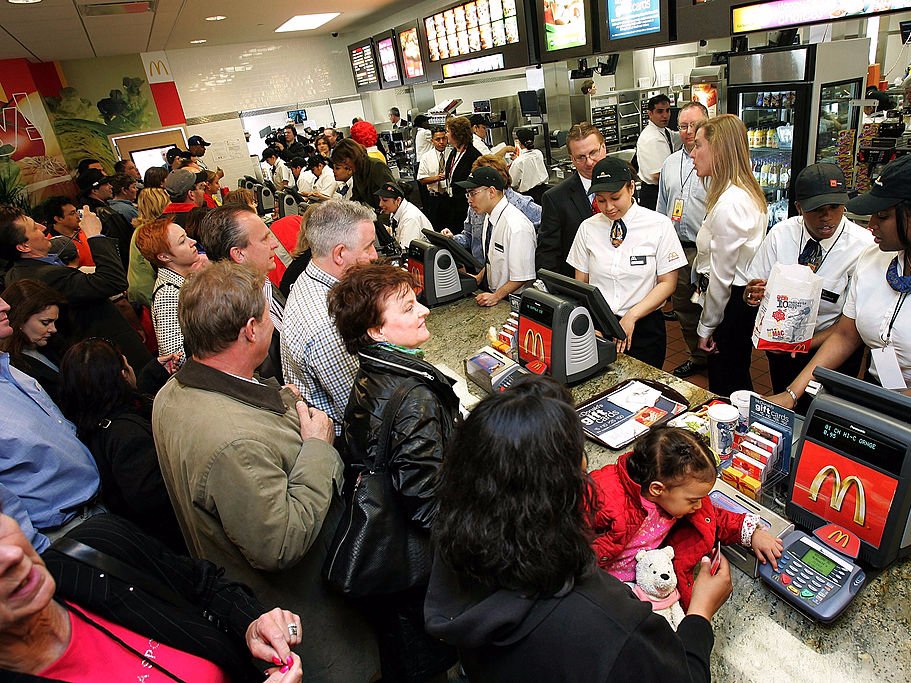 Getty Images
Getty Images
McDonald’s, Outback Steakhouse, and several dozen other food and hospitality retailers are using daily paychecks as a means to give low-wage workers more flexibility with their finances.
Steve Barha, CEO of Instant Financial, the technology company enabling retailers’ move to same-day pay, said the option is partly meant to cater to a preference shared by millennial employees that quick cash is better than waiting two weeks for a lump sum.
“Basically, their life is real-time,” Barha told Business Insider. “Their communication is real-time. Their transportation is real-time, with Uber and Lyft. So this program really aligns with their real-time life and being in control of their whole life experience.”
 The Instant Financial dashboard shows users their balance and gives them the option to request up to 50% of that day’s pay.Instant Financial
The Instant Financial dashboard shows users their balance and gives them the option to request up to 50% of that day’s pay.Instant Financial
Barha started Instant Financial in 2016 with the goal of helping people in low-end jobs get access to their money quickly, and as a means to avoid the predatory lending practices sometimes involved in obtaining money before payday. Instant’s network currently includes some 50 franchisees employing 150,000 people across the US.
Workers that use the service operate within a set of constraints.
On a paired mobile app, an employee can request up to 50% of their current day’s pay within an hour of their shift. That money goes into an Instant account, which comes with a debit card, known as the Instant card, that the employee can swipe as payment or use to withdraw money at an ATM.
The idea is that employees can have access to quick money in case something important comes up — an option that also helps older workers who, like many of their younger colleagues, aren’t in the strongest financial situation, Barha said. The average amount that employees who use Instant Financial get at the end of a shift is $27. Having that money immediately could make the difference between having enough gas to get home and calling a tow truck, he explained.
The program isn’t necessarily designed for people to make impulsive purchases whenever they feel like it, though.
“On day six of the pay cycle, you can’t all of a sudden pull days three, four, and five of the pay cycle, and now you have a bunch of money,” Barha said. “It’s really a little bit of money, and it’s there when you need it.”
Instant Financial has been collecting data on the effects of same-day pay and has found increases in employee satisfaction and worker retention, and a decrease in the number of worker absences. Employers have also reported increased satisfaction with workers. Barha couldn’t comment on the specific reductions or gains, he said, since data is still being collected.
Eventually, the program will look to move outside the food and hospitality industries and into other sectors with a high number of hourly workers, such as retail. The expansion is meant to serve Instant Financial’s larger mission of giving people maximum freedom to use their money how they see fit.
“Having pay locked up in this standard pay cycle doesn’t serve the employer. It doesn’t serve the employee,” Barha said. “But there really just hasn’t been a better way to move money. What we say about Instant is that it’s the ‘modern money movement.'”













